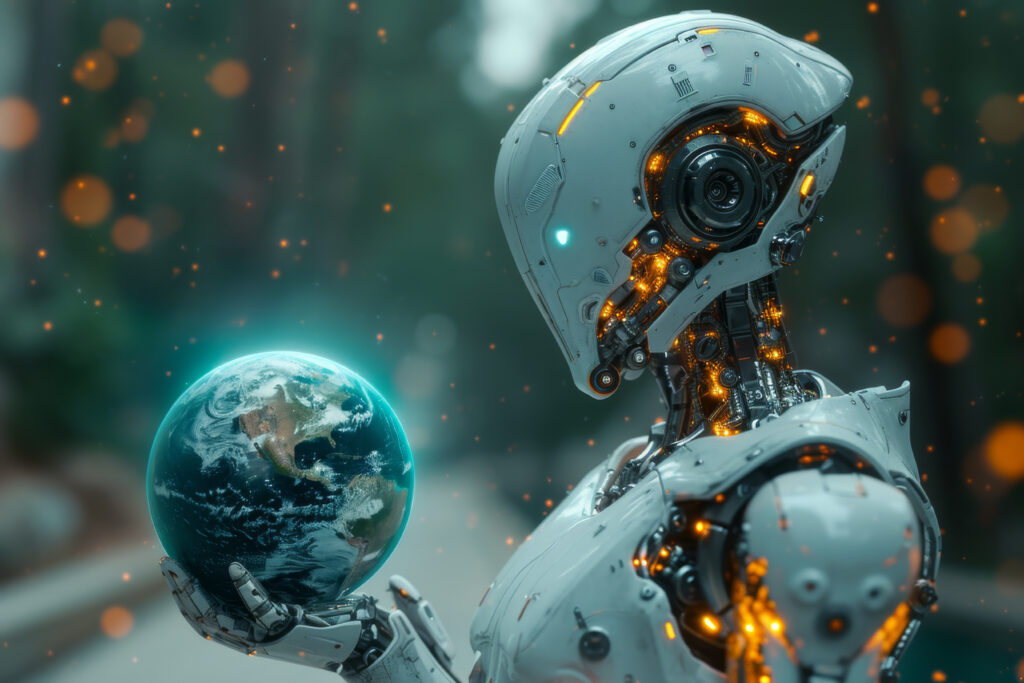- You are here:
- Home »
- Leadership »
- The Emerging Technocracy

The Emerging Technocracy
Part 1- Prophetic Shadows of Our Present
Guided by human intellect, and perhaps unknowingly by dark influences, a few pioneers of innovation and speculative thinkers — many of whom were writers like Sir Thomas More, Sir Francis Bacon, Aldous Huxley, and George Orwell — sensed the coming of a new era of enlightenment and discovery centuries ago. These authors, living in different times, laid the foundation for modern visions of utopia and dystopia. More, in his 1516 work Utopia, coined the term and introduced the idea of a perfect society, setting the stage for future philosophical debates. Bacon, in New Atlantis (1627), imagined a scientific and communal utopia where technology and reason would advance humanity. Campanella, in City of the Sun (1623), envisioned a theocratic, egalitarian society ruled by wisdom.
Later in the 20th century, a student of these early thinkers, Huxley, in Brave New World, warned of a future not conquered by oppression, but seduced by pleasure, where humanity would enslave itself not by force, but by its desires — numbed by endless entertainment, engineered convenience, and synthetic happiness. Orwell, in 1984, described a future dominated by an oppressive regime, rewriting truth and monitoring every thought. A society ruled by fear, where power maintained itself through relentless surveillance and the crushing of freedom. Despite their differing tones, Huxley and Orwell’s warnings were clear: technology, if left unchecked, would reshape humanity in ways we hadn’t yet imagined, one through seduction and the other through domination.
Though written centuries apart, these works continue to resonate in our present day. They foreshadow a future brimming with wonder and beauty, yet fraught with uncertainty and potential consequences. The questions remain: how did they arrive at these ideas? Did they tap into secret wisdom passed down through the ages, guided by forces beyond their comprehension? From a spiritual and interdimensional perspective, these ideas may not have simply emerged from human intellect. They may have been inspired by realms beyond our physical sight — realms where unseen forces manipulate the course of history, weaving deception into the very fabric of reality.
As Ephesians 6:12 reminds us: “For we wrestle not against flesh and blood, but against principalities, against powers, against the rulers of the darkness of this world, against spiritual wickedness in high places.” This scripture underscores the invisible battle at play, far beyond the visible world. The forces shaping human innovation are not solely scientific or technological; they are deeply spiritual and interdimensional, influencing the direction of culture, beliefs, and even survival.
As Christians, we must recognize that what unfolds in the world is not just a technological evolution. It is an intentional plan, driven by a purposeful design to reshape humanity’s destiny. The boundaries between the natural and supernatural blur, and we are entering an age where deception is pervasive, reality is manipulated through digital and interdimensional lenses. These lenses craft to mesmerize and draw the very hearts and spirits of mankind, subtly weaving into the fabric of society and perceived reality.
Stay with us as we now shift to explore how these ideas have evolved into the technologies of today, and how they are reshaping the very world we live in. In Part 2, we will uncover the unseen forces influencing this massive transformation.
